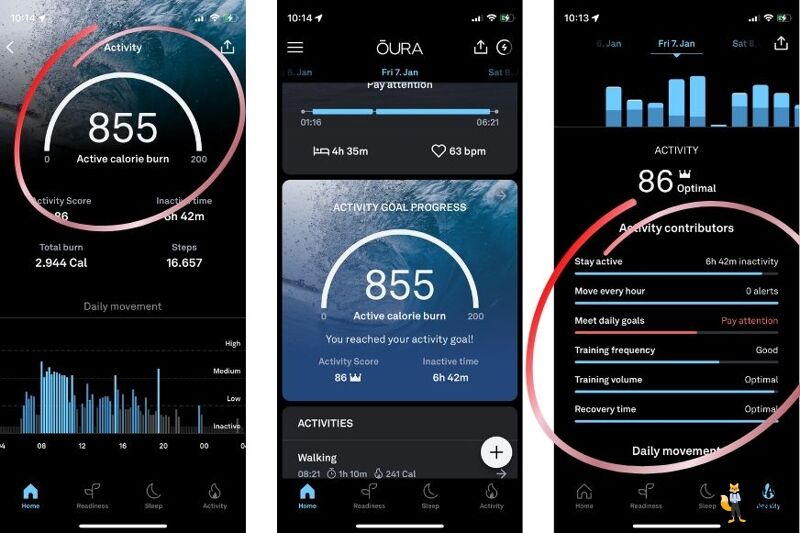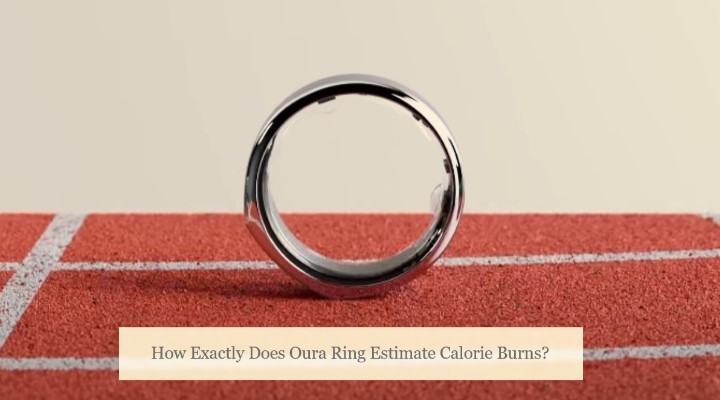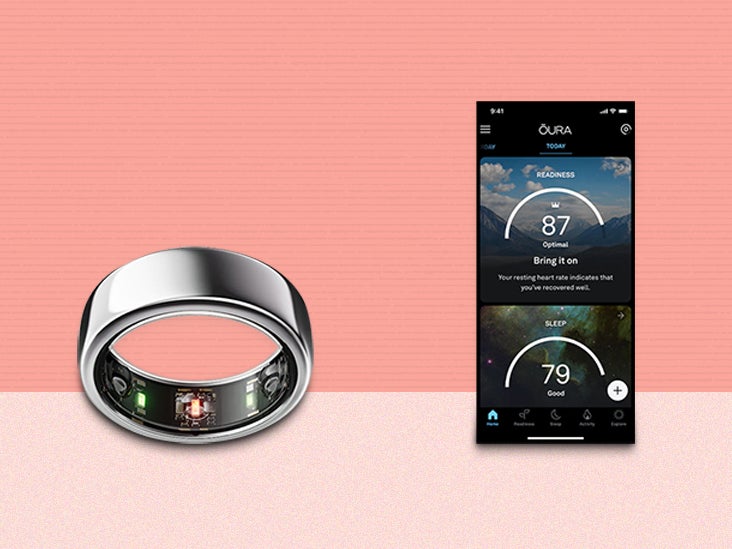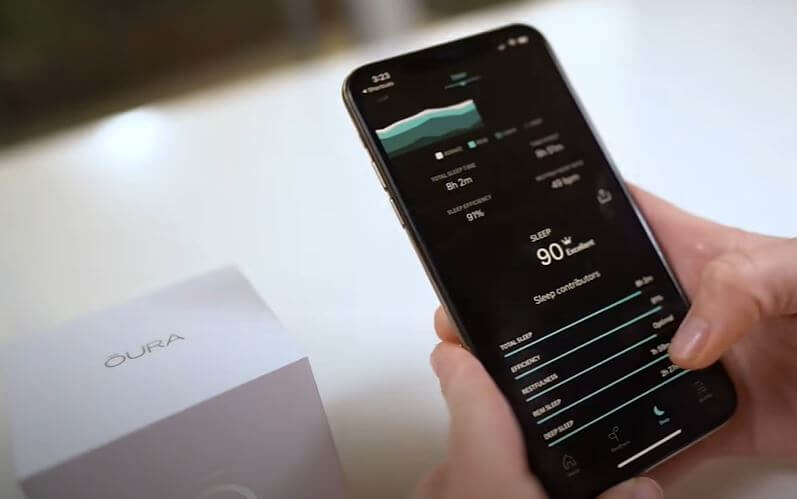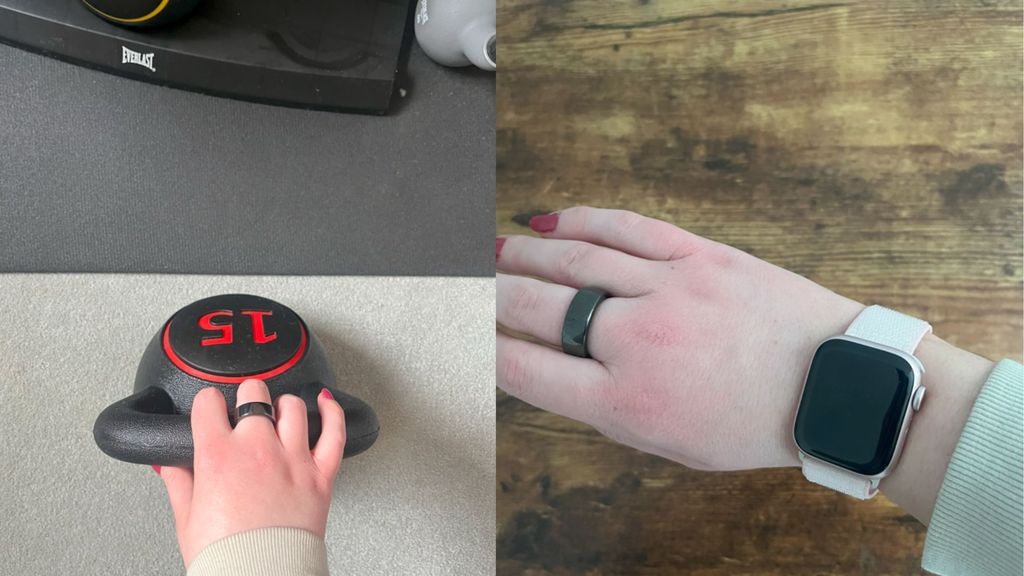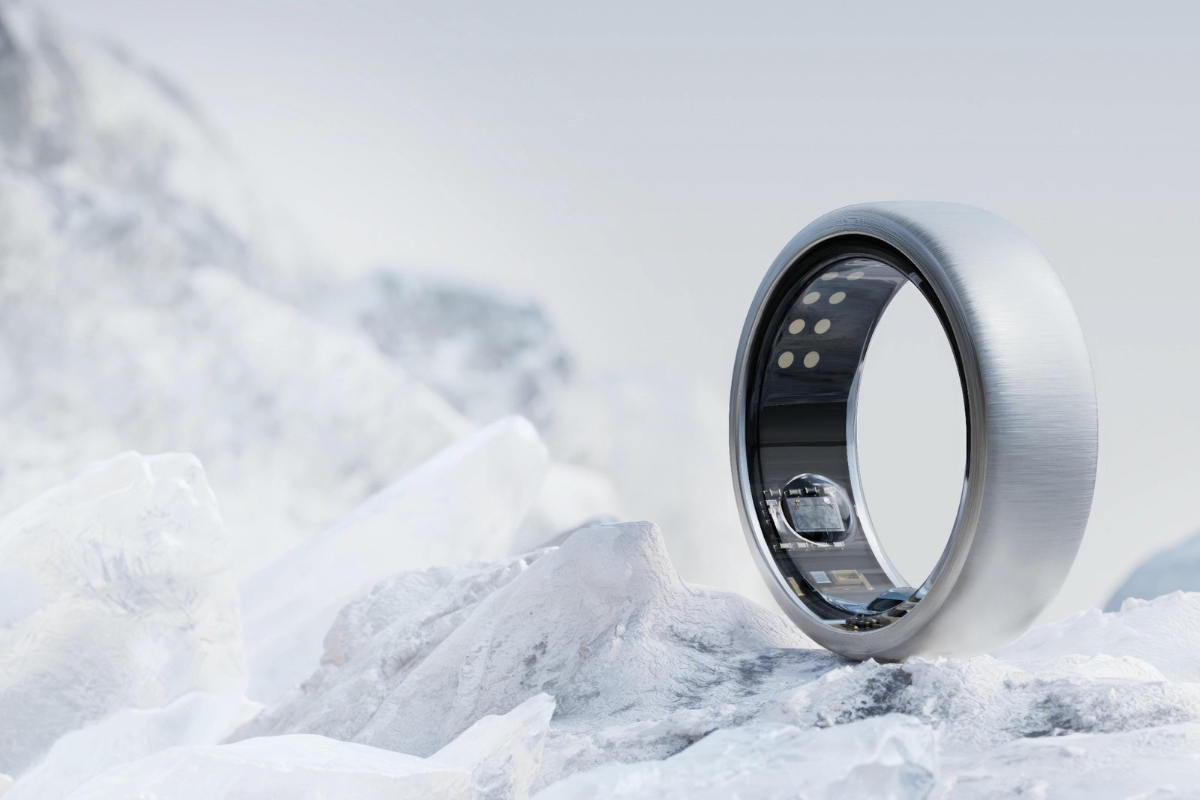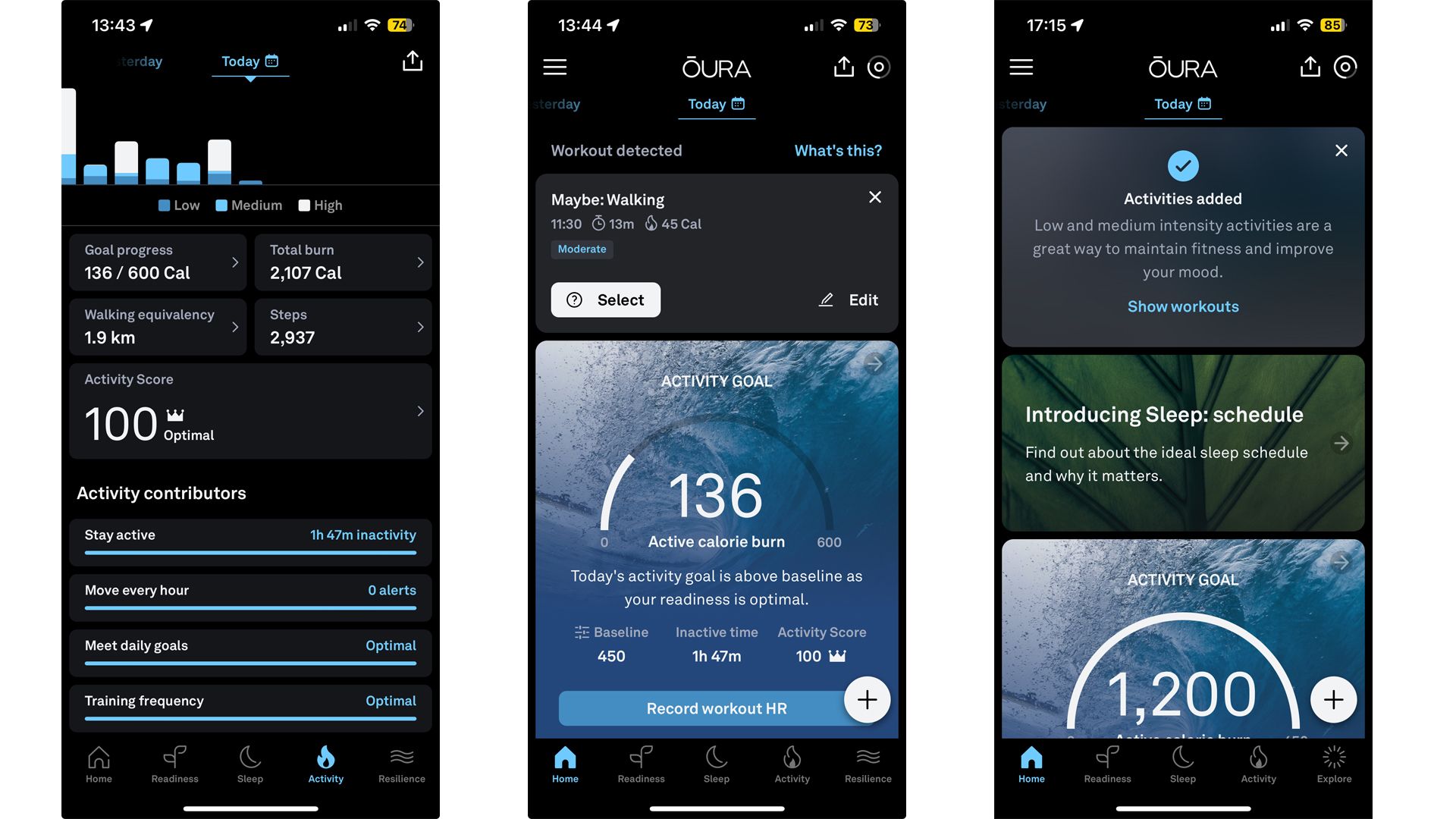Does The Oura Ring Track Calories
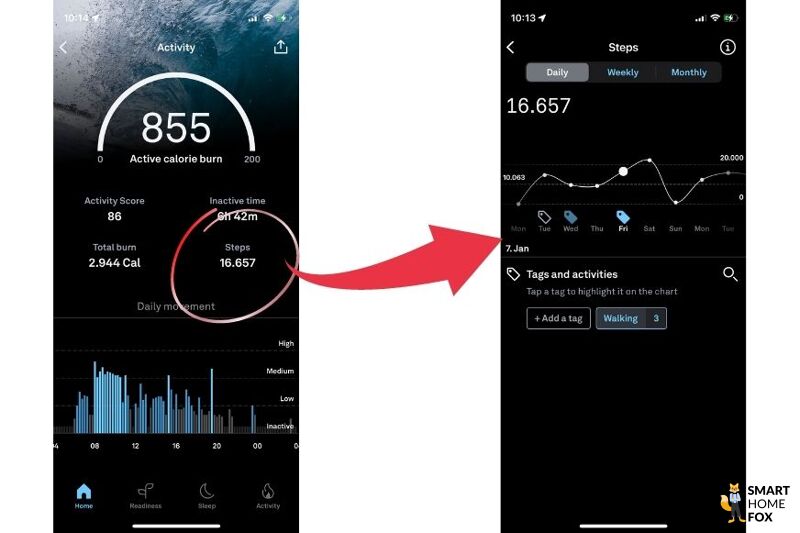
The Oura Ring, a popular wearable device known for its sleek design and comprehensive sleep tracking, has become a staple for those seeking insights into their health and wellness. But a persistent question lingers: does the Oura Ring accurately track calorie expenditure?
While the Oura Ring offers a range of health metrics, including sleep stages, heart rate variability (HRV), and activity levels, its calorie tracking capabilities are a point of both interest and debate. Understanding the nuances of how the Oura Ring estimates calorie burn is crucial for users aiming to manage their weight or optimize their fitness routines.
What the Oura Ring Tracks
The Oura Ring primarily focuses on tracking activity levels through movement sensors and heart rate data. It utilizes this information, combined with user-provided data like age, sex, height, and weight, to estimate calorie expenditure.
Specifically, the ring monitors steps taken, distance traveled, and activity intensity to quantify daily movement. It also incorporates heart rate data to gauge the intensity of workouts and daily activities, providing a more personalized calorie burn estimate.
The Calorie Calculation
The Oura Ring calculates calorie expenditure using proprietary algorithms that consider activity data, heart rate information, and user-specific biometrics. This calculation is designed to estimate both active calories burned during exercise and basal metabolic rate (BMR), the number of calories the body burns at rest.
BMR is typically estimated based on factors like age, sex, weight, and height. By combining BMR with activity-related calorie burn, the Oura Ring attempts to provide a comprehensive daily calorie expenditure estimate.
It's important to note that calorie tracking is inherently an estimation, and no wearable device can precisely measure calorie burn with 100% accuracy. The Oura Ring, like other trackers, relies on predictive models based on population-level data and individual inputs.
Accuracy Considerations
While the Oura Ring offers a useful estimate, several factors can influence the accuracy of its calorie tracking. Individual metabolic rates vary significantly, and the algorithms used by the ring may not perfectly capture these individual differences.
Furthermore, the accuracy of calorie tracking can be affected by the type of activity performed. Activities with consistent, repetitive movements, like running or cycling, are typically easier for the ring to track accurately. In contrast, activities with varied or unpredictable movements, such as weightlifting or certain types of team sports, may result in less precise calorie estimates.
It is worth highlighting that Oura's official statements often emphasize the ring's strength in tracking sleep and recovery, rather than making definitive claims about calorie accuracy. The company positions the ring as a holistic health and wellness tool, with calorie tracking being one component among many.
Expert Opinions and Studies
While limited independent scientific research specifically evaluates the Oura Ring's calorie tracking accuracy, some studies have examined the accuracy of wearable devices in general. These studies often reveal varying degrees of accuracy, with some devices performing better than others depending on the activity type and individual characteristics.
For example, studies published in journals such as the Journal of Medical Internet Research have found that wearable devices tend to be more accurate in tracking steps and heart rate compared to calorie expenditure. This is partly because calorie estimation relies on more complex algorithms and assumptions about individual metabolism.
It is crucial to consult with healthcare professionals or registered dietitians for personalized advice on weight management and calorie needs. Wearable devices can be helpful tools, but they should not be solely relied upon for making critical health decisions.
Human Interest: A User's Perspective
Sarah Miller, a fitness enthusiast and Oura Ring user, shares her experience: "I find the Oura Ring incredibly helpful for tracking my sleep and understanding my HRV. However, I take the calorie estimates with a grain of salt. I use it as a general guideline, but I don't base my entire diet on what the ring tells me."
She adds, "I think it's important to listen to your body and work with a professional if you're serious about tracking your calories accurately. The Oura Ring is a great tool for overall wellness, but it's not a perfect calorie counter."
Conclusion
The Oura Ring provides an estimate of calorie expenditure based on activity levels, heart rate data, and user-provided biometrics. While it can be a useful tool for gaining insights into overall activity and energy balance, its calorie tracking accuracy should be considered with caution.
Users should view the Oura Ring's calorie estimates as a guideline rather than a precise measurement, and they should not solely rely on it for making critical dietary or fitness decisions. Combining the data from the Oura Ring with professional advice and self-awareness can lead to a more informed and balanced approach to health and wellness.
Ultimately, the Oura Ring is a powerful tool for monitoring various aspects of health, but its calorie tracking capabilities should be understood within the context of its limitations and individual variability.
